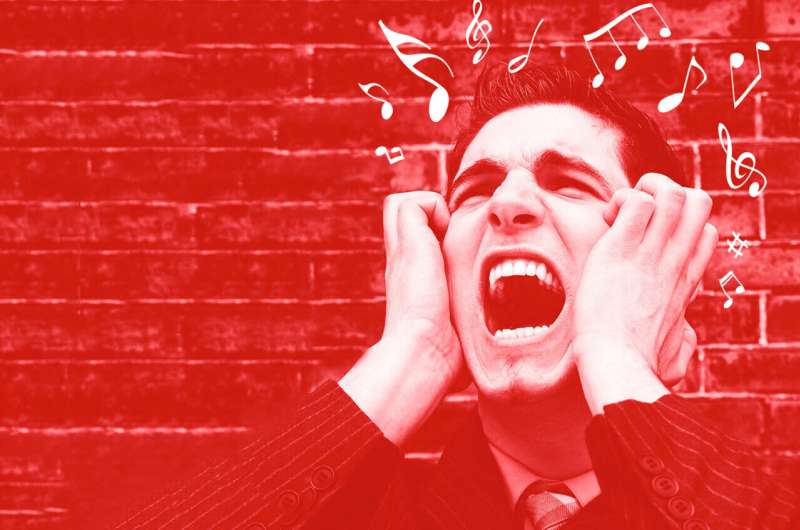Disliking certain kinds of music is crucial to personal taste. Credit: MPI for Empirical Aesthetics
So, a metal head shows up at a techno party... pretty unlikely, right? Right. Disliking certain kinds of music is just as constitutive of personal taste as is liking other kinds; and because it influences music-related behavior, this has consequences for our everyday lives. Researchers at the Max Planck Institute for Empirical Aesthetics (MPIEA) in Frankfurt am Main, Germany, have now investigated some of the possible reasons why people dislike music. Their study has just appeared in the open-access journal PLOS ONE.
With very few exceptions, previous research on musical taste has focused on preferences for certain kinds of music. Now, for the first time, a team of scientists has explicitly investigated musical aversion. In extensive interviews with 21 participants representing five age groups, they discovered the specific reasons for their individual dislikes.
"The most often mentioned type of dislike was musical style, followed by artist and genre," explains senior author Julia Merrill. "When we looked more closely at the participants' rationales, we were able to identify five main reference points for describing musical dislikes: the music itself, lyrics, performance, artist, and the people who listen to it."
The researchers assigned these rationales to three categories: first, object-related reasons, such as music composition or lyrics; second, subject-related reasons, such as emotional or bodily effects or discrepancies with self-image; and third, social reasons, which pertain to an individual's social environment and taste judgments common to it (in-group) or to other groups to which an individual does not feel part of (out-group).
Apart from the reasons for disliking music, participants described specific reactions they have when confronted with music they dislike. These included emotional, bodily, and social reactions, ranging from leaving the room to breaking off social contact.
While earlier research has shown that musical aversion has important social functions, this study expands the range of rationales to include music-related and personal reasons. Musical dislikes may, for instance, serve to maintain a good mood, facilitate identity expression, or help demarcate a social group. In this way, they fulfill similar functions as musical preferences, but are expressed less openly and more indirectly.
More information: Taren-Ida Ackermann et al, Rationales and functions of disliked music: An in-depth interview study, PLOS ONE (2022). DOI: 10.1371/journal.pone.0263384
Journal information: PLoS ONE
Provided by Max Planck Society
























